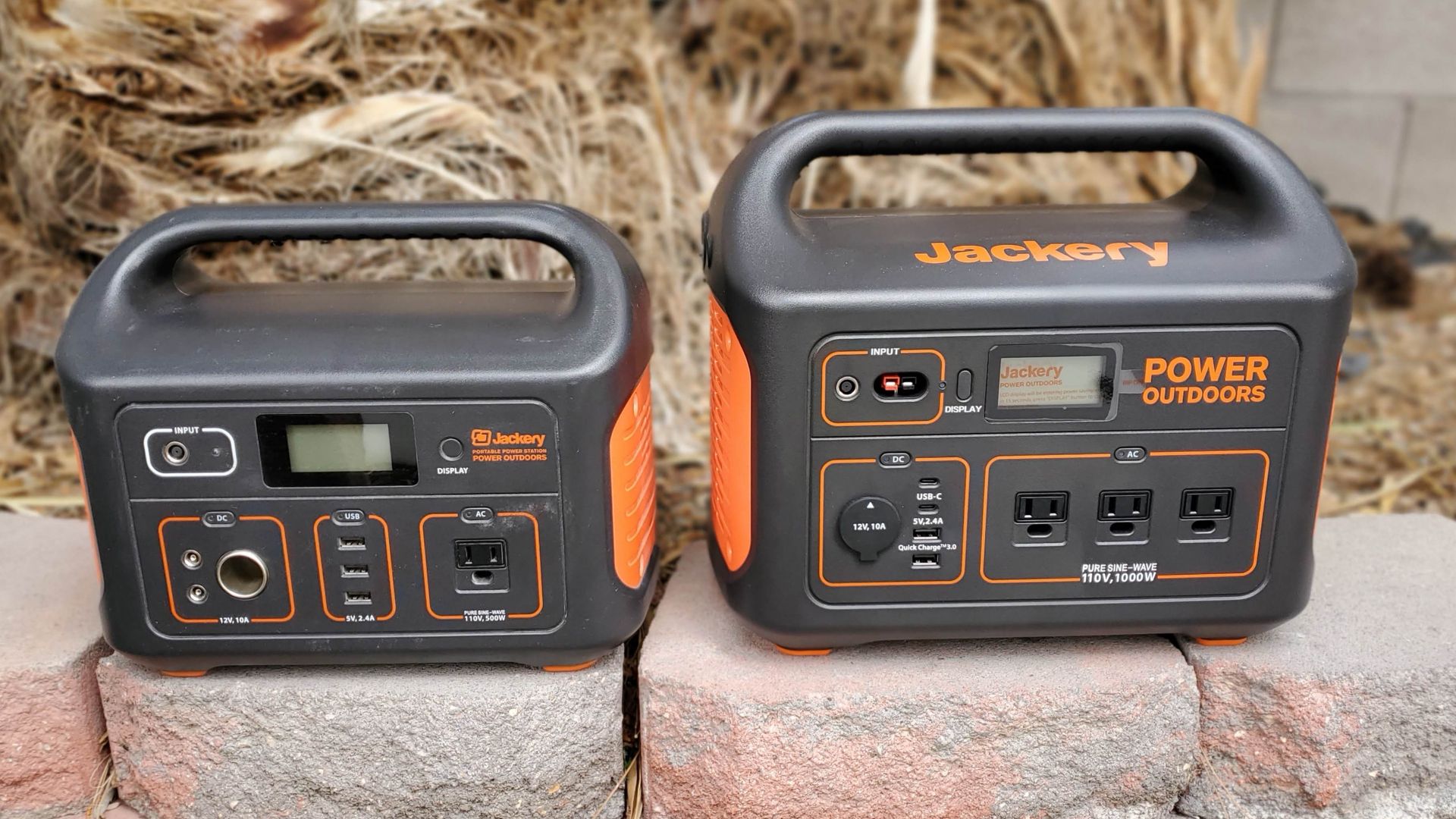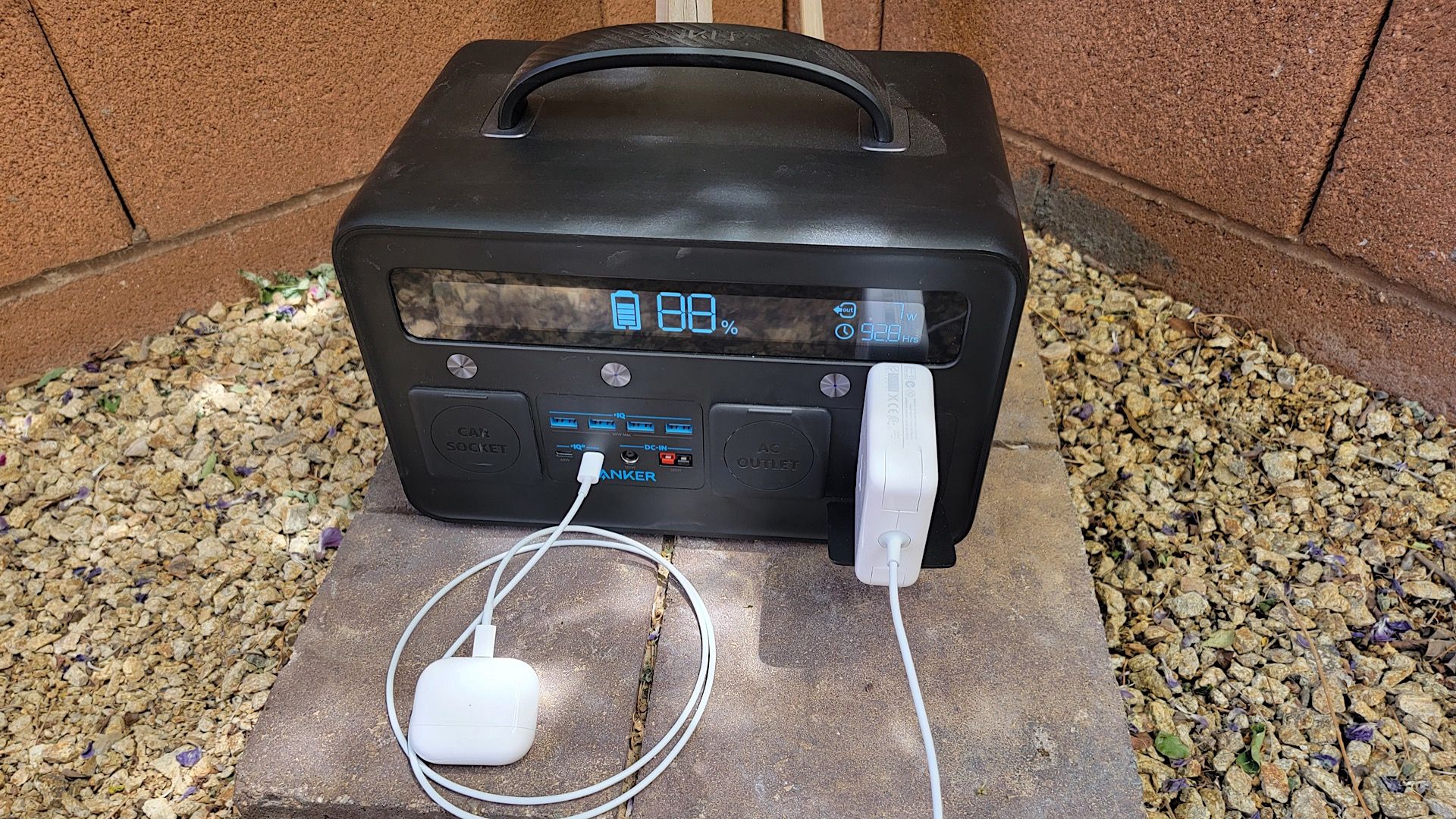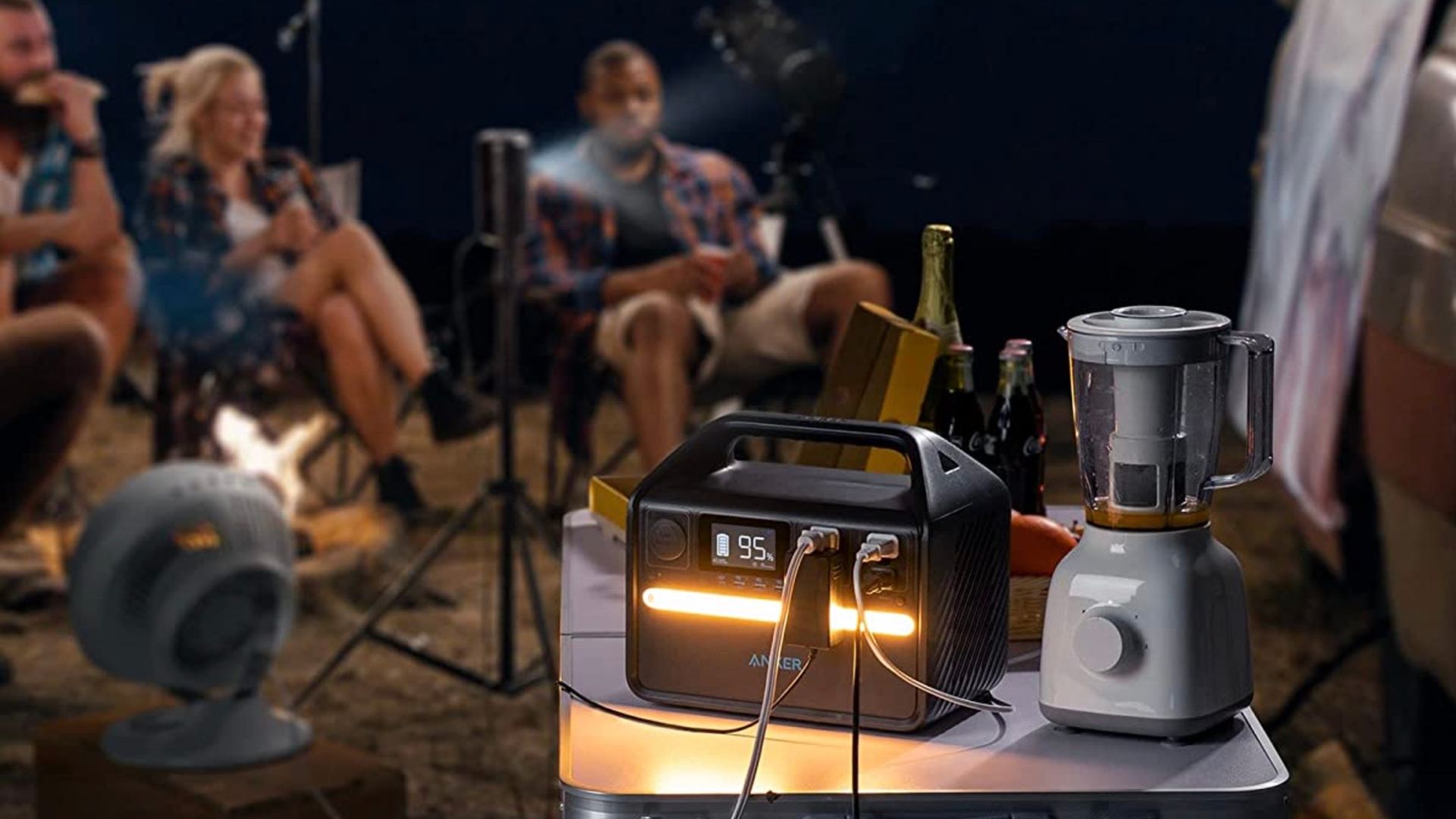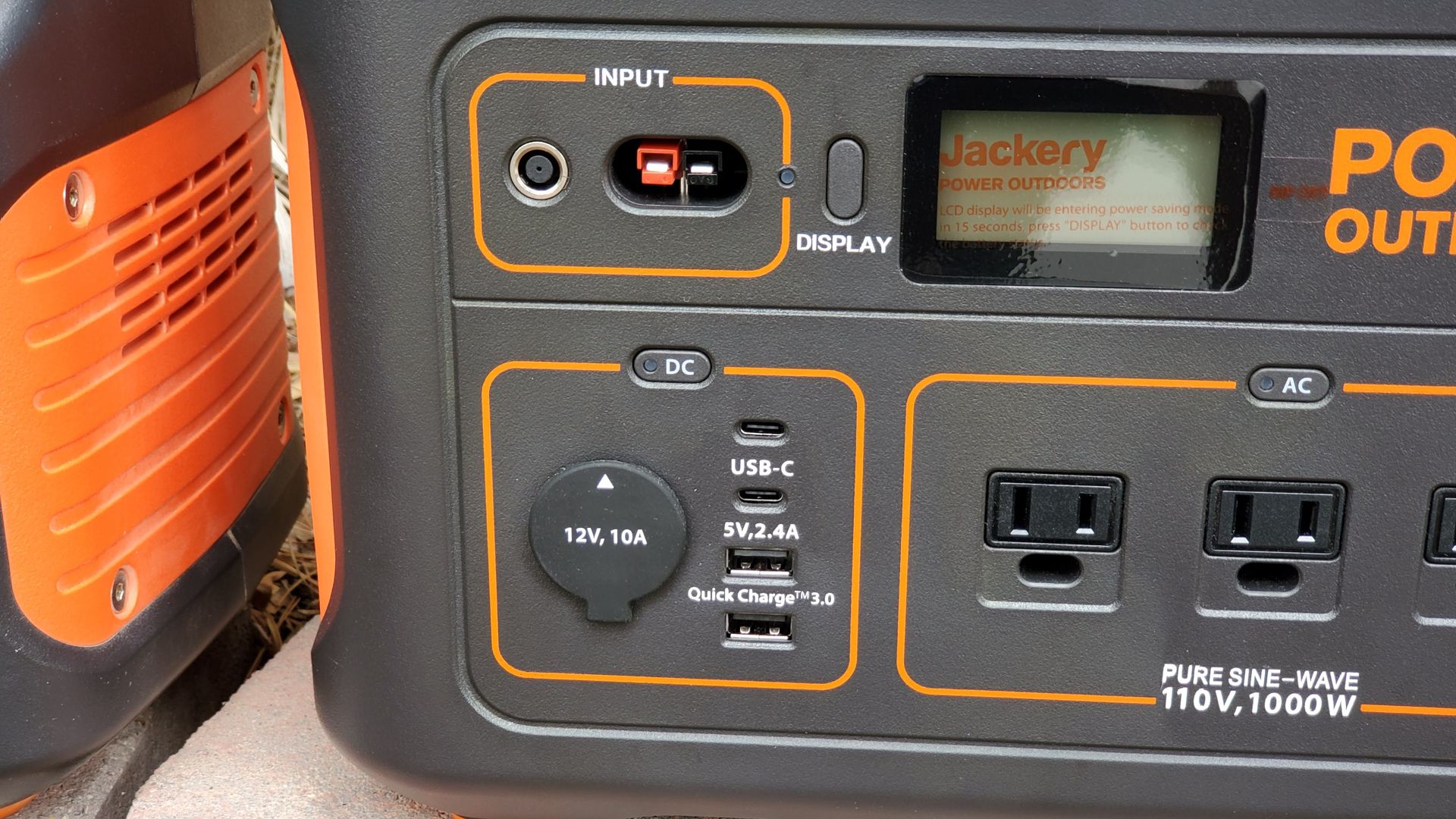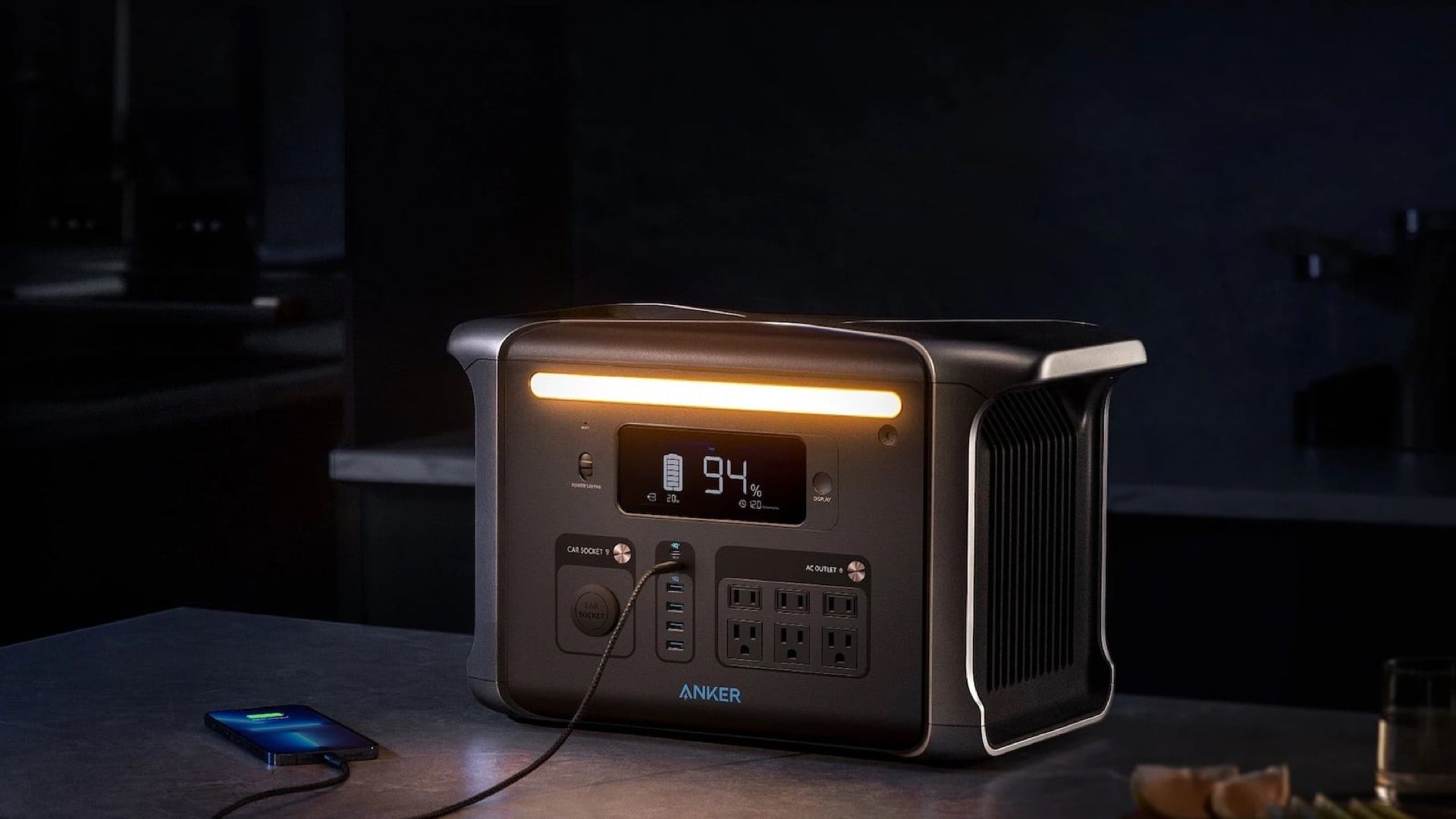Quick Links
If you enjoy the great outdoors, camping, work on construction sites, or want to be prepared during a power outage, you should consider buying a portable power station. These lunch-box-sized power banks are highly useful, and here we'll go over a few pros, cons, and why you'll want one.
What is a Portable Power Station?
What is and how does a portable power station work? It's a device full of different power sources for all your gadgets, including a fridge, TV, laptop, camera, speakers, drones, CPAP machines, tablets, phones, an electric grill, etc. It's basically just a giant battery.
Another way to explain it is that they are silent and rechargeable battery-powered generators. Most of them are roughly the size of a lunch box or small cooler, and they're filled with large lithium-ion batteries similar to what you'd find in a laptop, only bigger. You'll charge it at home or with solar panels, then take it anywhere you need it, or store one for later.
We're not talking about a generator, nor a small portable battery for phones you can store in a backpack. Those are entirely different. We mean the bigger 500-watt, 1000, or even 2,000-watt portable power stations full of AC outlets, USB ports, 12v ports, and more. These silent little boxes deliver on-demand power anywhere and everywhere.
Power stations come in different sizes, features, and various price points to fit your needs.
Who Should Use a Portable Power Station?
If you're considering buying a portable power station, you should probably go ahead and just do it. They're excellent electronics that come in handy for all different situations. As we said earlier, they're great for anyone that enjoys going outdoors or camping, especially if you prefer what I call "glamping" with a blow-up mattress, heaters, lights, or hot coffee on a cold mountain morning.
Some, like the Anker Powerhouse, come with built-in LED lanterns or can recharge from solar panels, making them great for camping and emergencies. I own a cabin in the beautiful mountains outside Zion, Utah, and take a power station with me every time I go. I can quickly recharge phones, battery-powered lanterns, my e-bike, and I even use it to run a Keurig coffee maker or a fan on hot summer nights.
Yes, my cabin has a gas-powered generator, but at night no one wants to hear that loud engine running and ruining the vibe around the campfire. I often run the kitchen lights off my Anker or Jackery, saving the gas generator for later, if necessary.
Camping is just one of many different reasons someone would want to buy a portable power station. They're great for construction workers on a job site, perfect for family vacations in the RV, and it's an excellent product to have in case of emergencies.
Depending on the size of your portable power station, one could keep all your phones, lanterns, or crucial products like a CPAP machine running during a power outage. That way, you'll be able to stay in contact with friends and family, receive weather alerts, or sleep with a breathing machine.
For example, the Jackery 500w will recharge most smartphones upwards of 40 times or run a fridge for 10 hours. You'd have a phone with cell service for several weeks during an emergency or cold food until power is restored.
The Pros and Cons of a Portable Power Station?
Now that you know a little more about portable power stations, how much one has to offer, and how you could use one, I want to mention a few of their advantages and disadvantages. Then, it'll come down to your wants, needs, and budget.
Pros
Obviously, the biggest benefit of using a portable electric power station is you'll have battery power at a moment's notice. Well, as long as you store it fully charged. If the power goes out at home, you can instantly pull one out, keep your computer going, recharge a phone, or hook it up to the fridge, so food doesn't go bad.
There are countless different situations in which one of these would come in handy. From emergencies, work, or play. They're also smaller and lighter than an actual generator, not to mention they're silent and don't release generator exhaust.
Most of them can be recharged via solar panels instead of running on gas, so all you need is a little sunlight. Popular brands offer solar panels, including Jackery, or third-party solar panels that work with other brands like Goal Zero and Anker power stations.
Plus, they're just cool. Being able to lend friends or others on camping trips power is always a good feeling.
And did we mention you can charge multiple devices at the same time? I've had six different things plugged into my new Anker Powerhouse 757, all charging or running simultaneously, and it handles it with ease. Speaking of the Anker 757, my review is coming up soon, and if you don't want to miss it, subscribe to our daily newsletter.
Cons
It's not all good news, though. Portable and rechargeable power stations are expensive and can often cost as much as a regular generator or inverter. They range anywhere from $299 to easily over $1,000 when you start getting into the larger capacities.
Some really big options, like the EcoFlow Delta 3,600-watt, are over $3,000. Then again, I wouldn't call that "portable" either, and instead, it's just an option over a traditional gas-powered system.
They're also relatively heavy, and depending on what type of camping you're doing, you may not want to lug one around. My go-to portable power station is the Anker Powerhouse 800, and it weighs around 18 lbs. It's not too big, not too small, and is easy enough to carry to the tent or sit on the picnic table.
And finally, they can't run everything as a generator can. Most portable power stations have a max load limitation and only do 120V AC outlets. Meaning it's not going to run larger appliances like a washing machine, dryer, or even some heaters. A refrigerator needs power off and on to keep things cold and work fine. In comparison, a big heater needs the heating elements constantly running, which will drain the battery faster than expected or not run at all.
Should You Buy a Power Station?
In closing, should you buy a portable power station? We can't answer that for you, as that's entirely up to you. That said, we've laid out several reasons you'd want one, how they work, and some of the many benefits of having one ready in case you need it. I own several, lend them to friends or family, and recommend one without hesitation.
You don't need to get crazy and get a huge 1500w portable power station. Popular brands like Anker, Jackery, Goal Zero, RockPals, and others have smaller, more affordable versions.
Decide how much power you'd comfortably need or want, what you can afford, and choose what's best for you. Just keep in mind that a portable power station has some limitations, but the benefits could far outweigh the cons.
At the end of the day, they're an excellent option to have in your arsenal.
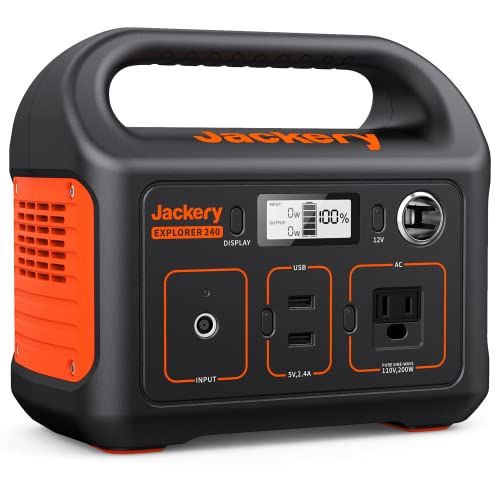
Jackery Explorer 240 Portable Power Station
The Jackery 240 is small, portable, and packs plenty of power.
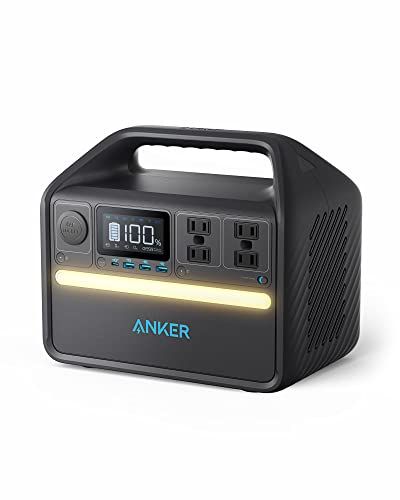
Anker 535 Portable Power Station
If you want a portable power station that does a little of everything, get the Anker 535.
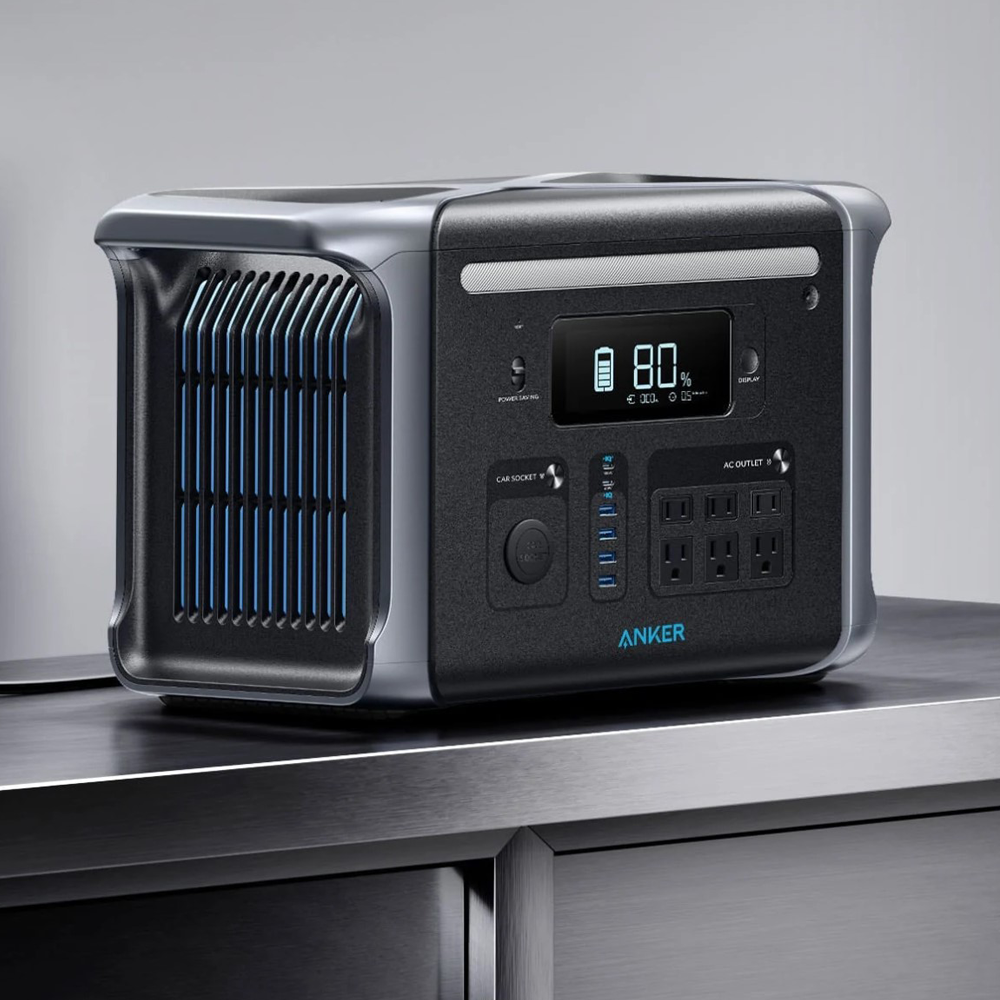
Anker 757 Powerhouse
Anker's new heavy-duty PowerHouse 757 is pricey, at $1,399, but it can power pretty much anything.

